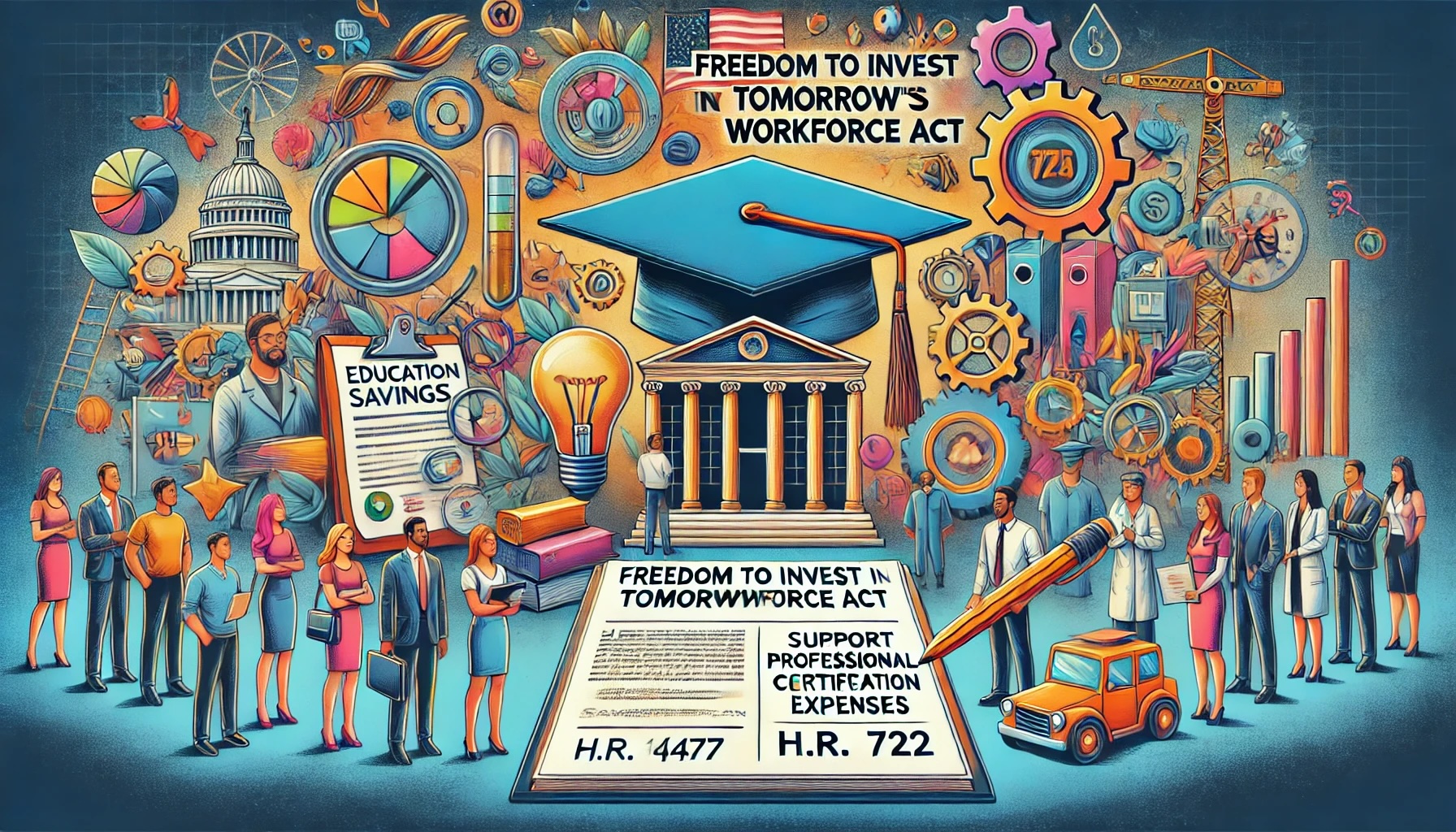
The Freedom To Invest in Tomorrow’s Workforce Act (H.R. 1477 in the House and S. 722 in the Senate) is bipartisan legislation introduced in March 2023. Its primary objective is to expand the permissible uses of 529 education savings plans to include expenses related to obtaining or maintaining recognized postsecondary credentials, such as licenses and professional certifications.
Key Provisions:
- Expanded Use of 529 Plans: Currently, 529 plans are tax-advantaged savings accounts designated for qualified education expenses, including tuition, fees, books, and supplies for higher education institutions. This Act proposes allowing these funds to also cover costs associated with postsecondary credentialing programs. Insights Association
- Eligible Expenses: Under the proposed legislation, 529 funds could be used for:
- Tuition and fees for credential programs, including preparatory courses.
- Testing fees, including practice exams.
- Required books and equipment.
- Continuing education and credential renewal expenses.
- Other charges necessary to obtain and maintain a recognized postsecondary credential. Insights Association
Legislative Support:
- House of Representatives: Introduced by Representatives Rob Wittman (R-VA) and Abigail Spanberger (D-VA), the bill has garnered significant bipartisan support, with over 100 cosponsors as of December 2023. ASAE Center
- Senate: Introduced by Senators Amy Klobuchar (D-MN) and Mike Braun (R-IN), the Senate version has also received bipartisan backing. Insights Association
Advocacy and Support:
The Tomorrow’s Workforce Coalition, comprising over 760 trade associations, professional societies, and businesses, advocates for the passage of this Act. The coalition emphasizes that the legislation would provide valuable tax-advantaged resources for individuals pursuing career growth, mid-career changes, or alternative career pathways.
Implications:
If enacted, this legislation would transform 529 plans from solely “college savings plans” to more comprehensive “career savings plans,” reflecting the evolving nature of workforce development and the increasing importance of postsecondary credentials in various industries.
As of November 2024, the bill remains under consideration in Congress, with ongoing discussions and advocacy efforts aimed at securing its passage.